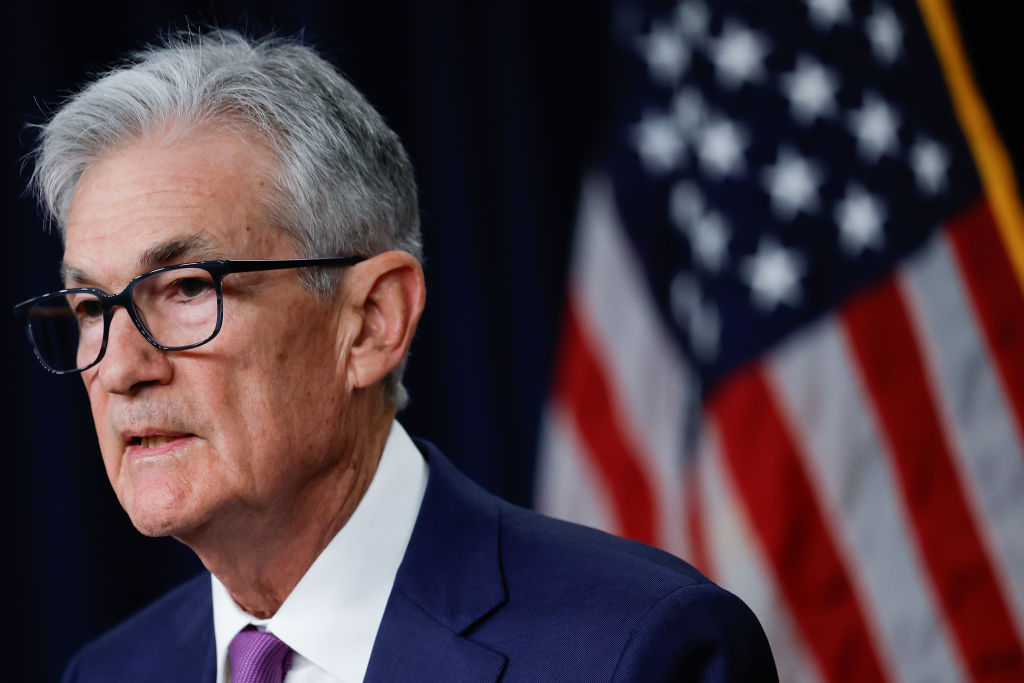Is College Still a Good Investment?
Rising college costs and heavy debt have raised doubts about the payoff from a college degree.

Profit and prosper with the best of Kiplinger's advice on investing, taxes, retirement, personal finance and much more. Delivered daily. Enter your email in the box and click Sign Me Up.
You are now subscribed
Your newsletter sign-up was successful
Want to add more newsletters?

Delivered daily
Kiplinger Today
Profit and prosper with the best of Kiplinger's advice on investing, taxes, retirement, personal finance and much more delivered daily. Smart money moves start here.

Sent five days a week
Kiplinger A Step Ahead
Get practical help to make better financial decisions in your everyday life, from spending to savings on top deals.

Delivered daily
Kiplinger Closing Bell
Get today's biggest financial and investing headlines delivered to your inbox every day the U.S. stock market is open.

Sent twice a week
Kiplinger Adviser Intel
Financial pros across the country share best practices and fresh tactics to preserve and grow your wealth.

Delivered weekly
Kiplinger Tax Tips
Trim your federal and state tax bills with practical tax-planning and tax-cutting strategies.

Sent twice a week
Kiplinger Retirement Tips
Your twice-a-week guide to planning and enjoying a financially secure and richly rewarding retirement

Sent bimonthly.
Kiplinger Adviser Angle
Insights for advisers, wealth managers and other financial professionals.

Sent twice a week
Kiplinger Investing Weekly
Your twice-a-week roundup of promising stocks, funds, companies and industries you should consider, ones you should avoid, and why.

Sent weekly for six weeks
Kiplinger Invest for Retirement
Your step-by-step six-part series on how to invest for retirement, from devising a successful strategy to exactly which investments to choose.
Douglas Webber is an associate professor in the economics department at Temple University in Philadelphia, where he focuses on labor and the economics of higher education.
A recent study from the Federal Reserve Bank of St. Louis suggested that the value of a college education has declined. Is college still worth the cost? For the average person, college is still overwhelmingly a good decision. But like any investment, there are risks. The potential negative consequences are greater now than they were for previous generations. Not only are you taking time out from the labor market, but you're paying more to attend college. Plus, many students are taking out debt that's nearly impossible to discharge in bankruptcy. But the biggest risk is not graduating, because you still have the debt but don't have a degree.
Do workers who graduate with a bachelor's degree still out-earn workers without a college degree? Yes, but the price of attending college has gone up, so the net return of a college degree has gone down a little bit. Still, over a lifetime, college graduates earn about $900,000 more relative to high school graduates. Even if you discount that figure to take into account the types of students who go to college, the "opportunity cost" of not being in the labor force and other factors, the net value of a college degree is still about $350,000 over your lifetime compared with a high school degree.
From just $107.88 $24.99 for Kiplinger Personal Finance
Become a smarter, better informed investor. Subscribe from just $107.88 $24.99, plus get up to 4 Special Issues

Sign up for Kiplinger’s Free Newsletters
Profit and prosper with the best of expert advice on investing, taxes, retirement, personal finance and more - straight to your e-mail.
Profit and prosper with the best of expert advice - straight to your e-mail.
How does the major a student selects affect the outcome? The choice of a major may be the single biggest financial decision people will ever make. If you list majors from top to bottom based on earnings, it's roughly a $2 million differential. But lifetime earnings shouldn't be in the top three things that you base your decision on, in part because job satisfaction matters. There's an economic reason, too. If you compare average earnings for an English major to, say, an accounting major's earnings, accounting looks a lot better. But frankly, if that person is not very good at accounting, they'll earn less than the average accounting major. In that case, you may maximize your earnings potential by choosing English.
How does student borrowing factor into the equation? Debt is a huge factor. If you take out a lot of debt for a low-earning major, the chances that it's going to pay off are less than 50-50. If you're an engineering major with a generous financial aid package, the chances it will pay off are virtually 100%.
And there are huge differences between federal student loans and private student loans. The protections that exist within the federal Stafford loan program are very strong and limit the consequences if you're unable to repay your debt. Private student loans don't have those protections. If you're attending a lower-cost school, you might be able to get most or all the way through college with only federal loans.
What should students and families consider when choosing a school? Finding a school that's right for you is a very personal decision. But it's important to look up a school's graduation rate, average earnings of graduates and other statistics on CollegeScorecard.gov to see if the school does a good job of getting students through to graduation and helping them find good jobs.
Students generally have a good sense of the value of different majors. They know that economics, engineering and finance are the high-earning majors and that music, humanities and the liberal arts are low-earning majors. But they have a really poor sense of the magnitude of the difference. Students should make a list of the majors they're considering and then look at the projected earnings for each. Understanding that won't change a lot of decisions, but they should be aware of the labor market they'll be going into.
Profit and prosper with the best of Kiplinger's advice on investing, taxes, retirement, personal finance and much more. Delivered daily. Enter your email in the box and click Sign Me Up.

-
 Dow Adds 1,206 Points to Top 50,000: Stock Market Today
Dow Adds 1,206 Points to Top 50,000: Stock Market TodayThe S&P 500 and Nasdaq also had strong finishes to a volatile week, with beaten-down tech stocks outperforming.
-
 Ask the Tax Editor: Federal Income Tax Deductions
Ask the Tax Editor: Federal Income Tax DeductionsAsk the Editor In this week's Ask the Editor Q&A, Joy Taylor answers questions on federal income tax deductions
-
 States With No-Fault Car Insurance Laws (and How No-Fault Car Insurance Works)
States With No-Fault Car Insurance Laws (and How No-Fault Car Insurance Works)A breakdown of the confusing rules around no-fault car insurance in every state where it exists.
-
 The December CPI Report Is Out. Here's What It Means for the Fed's Next Move
The December CPI Report Is Out. Here's What It Means for the Fed's Next MoveThe December CPI report came in lighter than expected, but housing costs remain an overhang.
-
 9 Types of Insurance You Probably Don't Need
9 Types of Insurance You Probably Don't NeedFinancial Planning If you're paying for these types of insurance, you may be wasting your money. Here's what you need to know.
-
 The November CPI Report Is Out. Here's What It Means for Rising Prices
The November CPI Report Is Out. Here's What It Means for Rising PricesThe November CPI report came in lighter than expected, but the delayed data give an incomplete picture of inflation, say economists.
-
 New Ways to Use 529 Plans
New Ways to Use 529 PlansTax-free withdrawals from 529 plans could help you sharpen your job skills.
-
 I Want to Help Pay for My Grandkids' College. Should I Make a Lump-Sum 529 Plan Contribution or Spread Funds out Through the Years?
I Want to Help Pay for My Grandkids' College. Should I Make a Lump-Sum 529 Plan Contribution or Spread Funds out Through the Years?We asked a college savings professional and a financial planning expert for their advice.
-
 The Delayed September CPI Report is Out. Here's What it Signals for the Fed.
The Delayed September CPI Report is Out. Here's What it Signals for the Fed.The September CPI report showed that inflation remains tame – and all but confirms another rate cut from the Fed.
-
 Banks Are Sounding the Alarm About Stablecoins
Banks Are Sounding the Alarm About StablecoinsThe Kiplinger Letter The banking industry says stablecoins could have a negative impact on lending.
-
 What Will the Fed Do at Its Next Meeting?
What Will the Fed Do at Its Next Meeting?The Federal Reserve is expected to keep rates unchanged at the next Fed meeting.